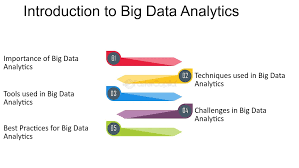Unveil the basics of Big Data, their emergence and importance
Trend of the times – big data – is so popular in today’s digital era as it is redefining the industries, innovating roads to the futuristic and changing our perception of reality. Thus, where it originated and why do we even need it remains a mystery to us.
The big data idea flowed as a response to the imperative to manage and evaluate a plenty of the information, which is produced by contemporary technologies. Although the moves itself gained dominance in the early twenty century, the exactness of the big data can be traced back to the last of the twentieth century.
1. According to the cyclic rule, geometric growth in which the number of produced data is doubled by adding one digit to the existing lot, has been enabled through the internet which has created an info-a-vast storage, making it possible to do maths of almost everything. This situation has prompted the transition from conventional web pages and social networking channels to the use of data sensors, IoT devices, and beyond due to the amount and velocity of data being processed surpass existing methods.
2. The pace of advancement was radically changed by just these few industries such as the finance, healthcare, and telecommunications industries which were the first to tackle with the said massive stored data. They encountered problems associated with storage, processing, analysis caused by which the researchers came up with tools and techniques aimed at utilising the big data potential.
3. Teaching contributed a lot in data massive field development, by research in computer science, statistics, and datamamagement, among other disciplines. Data mining, machine learning, and distributed computing were the the drivers of the data analytics revolution that enabled us to store, manage, and extract meaningful insights from the data.
1. Big data allows an organization a to uncover invaluable insights and trends in data that might be implicit within a massive amount of data Data sources can be currently viewed in more than one way. This opens the way for businesses to make all the facts-based choices. Also, it allows them to optimize their operations in many ways and, besides, identify new opportunities for growth.
2. The employment of big data in the decision-making process can help a company foresee the future trend and customers’ behavior, leading to the ability to be ready to take up new opportunities arising or address certain challenges before they get worse. From customer insight to responses to market changes, predictive analytics has now been seen in many industries as a huge help.
3. Companies that make use of big data do that by taking most out of data-based approach to innovate how products are being made, improve customer experience, and drive efficiencies into operations. Via personalized recommendations on e-commerce platforms to real-time fraud detection in financial institutions, big data is a central staple cross the board to drive innovation from different facets of the society.
4. The big data can overcome some of the most daunting problems faced by the society as the scope of the interference is large– varying from the healthcare to the perils of the climate change. Researchers and policymakers can dissect large-scale data to detect patterns of behavior, find precedents, and implement measurements based on evidence to solve complex dilemmas the society is facing.
Summarizing, big data is a revolutionary phenomenon due to sophisticated technologies, substantial academic research, and requirement of data-driven decision-save. By recognizing its history and relevance, institutions will be able to obtain the maximum impact from big data and, consequently, apply the innovations that they have come up with, obtain more insights to operate on the market, and create a beneficial social impact.




